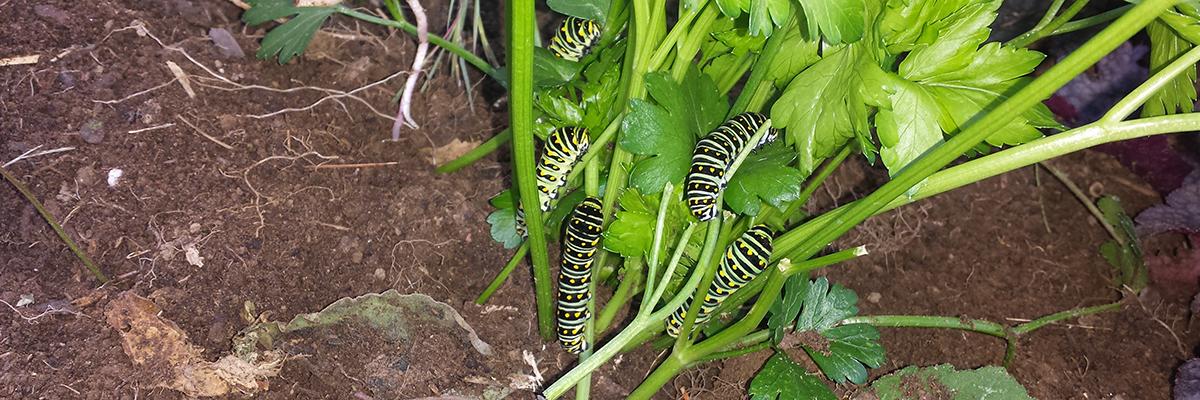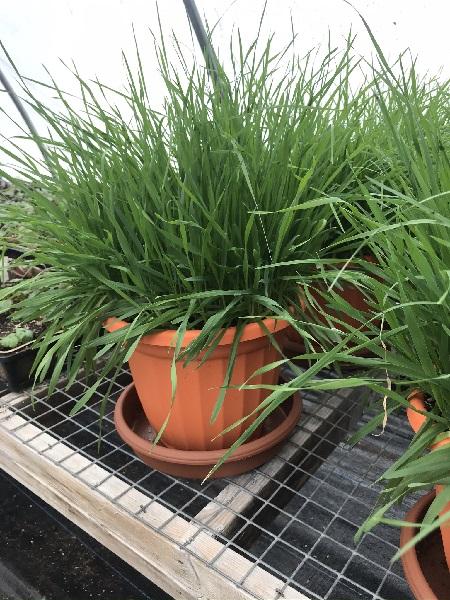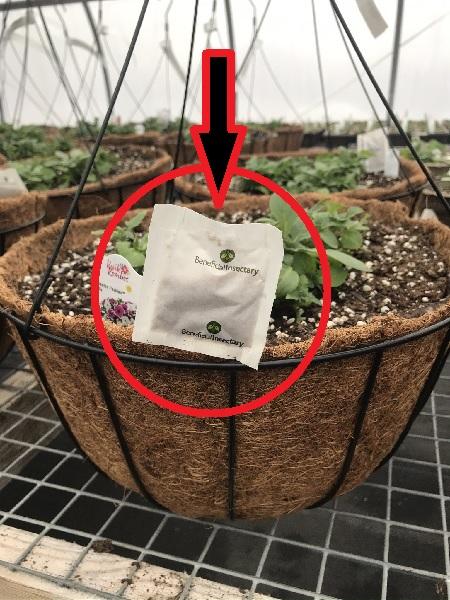
We have been using biocontrols for pest management for over 10 years. This program works on a preventive basis. Some beneficials are introduced before the first plants are placed in the greenhouse, others are day length sensitive and need to wait for longer days and warmer weather. Many of you have seen our “Bugs At Work” signs designating which plants we are using to either provide a breeding ground for our beneficial insects or a food source. Also, our beautiful established gardens and plantings naturally attract these garden helpers. Incorporating plants that they like and need in your garden will help it to thrive by providing a food source and habitat. Less pesticide use in your yard will help build that population of good bugs. We limit the use of pesticides and are careful and selective if the need arises. Using biocontrols requires patience and faith, allowing the good bugs the time to do their task of either eating or parasitizing the bad bugs.
I know we all have those pesky bugs that no matter how hard we try nonchemical options, they sometimes prevail. If you choose to use pesticides, organic or synthetic, please read the label carefully and follow the recommended rates, time of application and safety measures to protect yourself, family, pets, our pollinators and naturally occurring good bugs. Remember just because the pesticide label says organic, they can still harm our pollinators if not used correctly. Be a good steward, READ THE LABEL.

